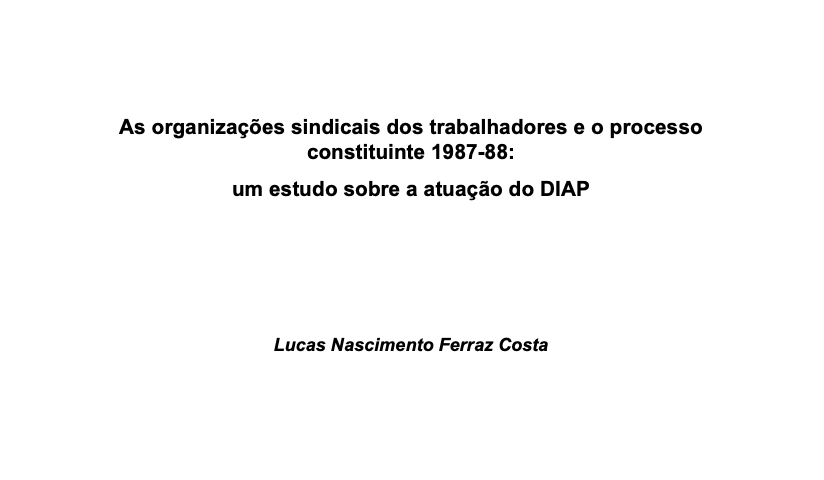Coalition Presidentialism, Provisional Measures, and Constitutional Review in ADI No. 4,029
29 de January de 2013
EDUCATION PRESSURE GROUPS AND THE DEMOCRATIC MANAGEMENT LAW
26 de August de 2013The Workers’ Trade Union Organizations and the Constituent Process of 1987-88: A Study on DIAP’s Role

The goal of this dissertation is to analyze the performance of the Department of Inter Parliamentary Advisory (Departamento Intersindical de Assessoria Parlamentar) (DIAP) in the constituent process of 1987-88. The organization was able to unify the consensual demands of the working class, uniting in a single project for the Constituent Assembly, the unions of the period, that were divided politically. With this, the DIAP changed the trade union agenda at that time, one of the reasons that explain the success of the “lobby” of working class in the National Constituent Assembly (NCA). In research, we divide the dissertation into two phases of the organization, before and during the Constituent Assembly. Previously, since 1983, when it was created, we analyze the formation process of consensual project, which involved the preparation of technical studies and negotiations with union leaders. When working in the NCA, we analyze the influential “lobby” practiced by DIAP, showing political conflicts faced by the organization at every stage of this process. We understand that DIAP was a central actor in defending the interests of workers, managing to convince the unions of workers, leftist political parties and progressive constituents to act according its design. It was a delicate pact, which was only possible by the peculiarities of the constituent process. The Constituent Assembly has provided the opportunity of “lobbies” to seek important achievements, in approving their interests in constitutional standarts. The DIAP is one of the most important products of this political reality. The support given to the organization to act on behalf of a class is explained by its institutional design, which has adapted to the lack of organization and preparation ahead of the unions of the importance of the constitutional process.
Author: Lucas Nascimento Ferraz Costa
Source: https://repositorio.ufscar.br/handle/ufscar/1019
